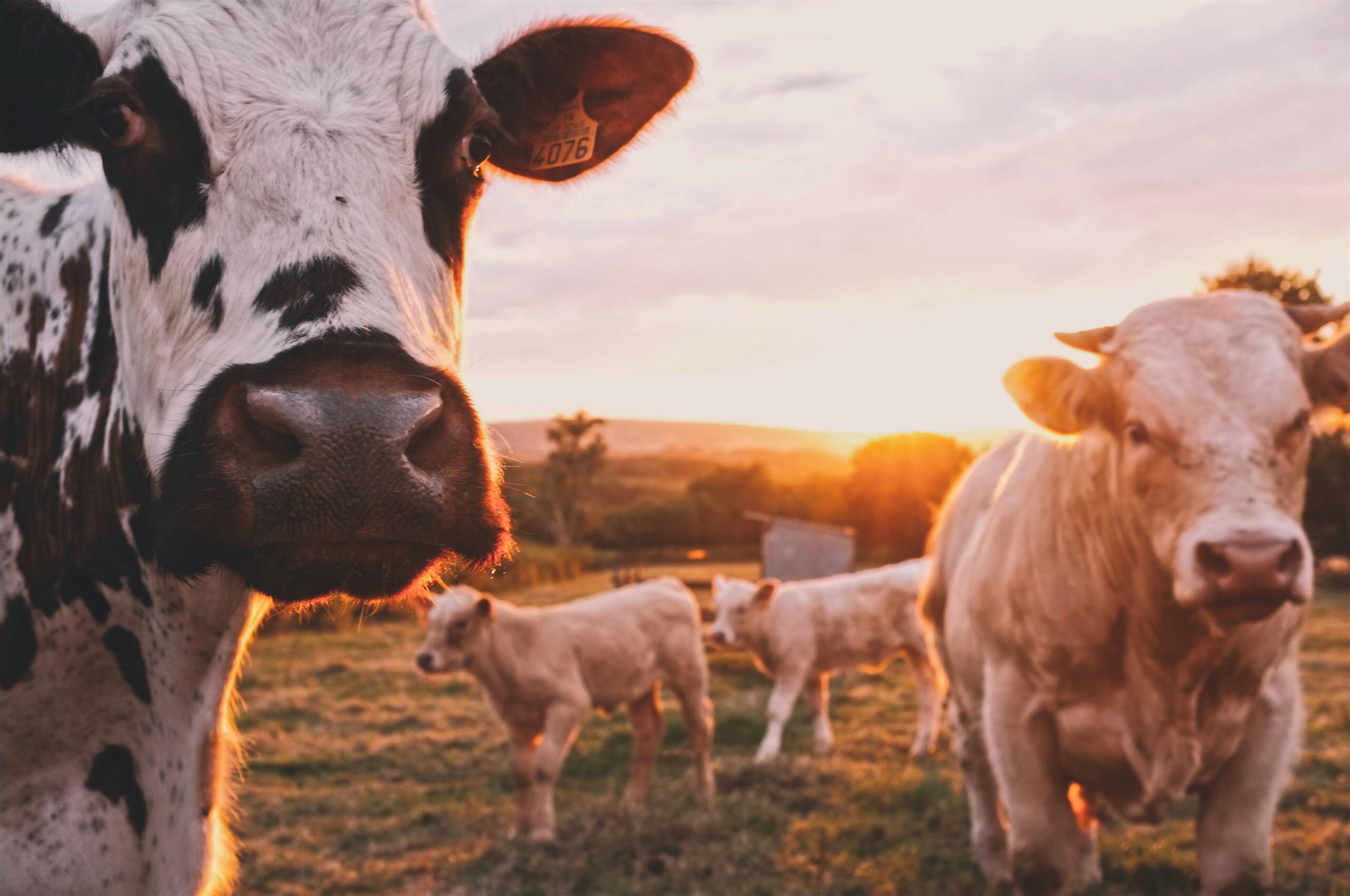Does the EU hate farmers? A doubt that many are starting to have by now

European farmers are furious at a European Union bullshit plan that would force them to be treated as industrial plants, similar to steel or chemical plants, to force them to reduce greenhouse gas emissions and other types of pollution, reports the Financial Times .
Greek farmer Takis Kazanas, 66, and his four sons manage a 94-acre ranch with 300 head of cattle in the mountains overlooking the Thessalian plain. Although farmers already capture biogas from cow dung and use homemade manure instead of chemical fertilizers, Kazanas is one of many farmers revolting against environmental bureaucrats who want to impose crippling new rules on them to cut emissions by 55% by 2030 compared to 1990 levels. Takis Kazanas with his four children on their farm in Northern Greece. Regulators in Brussels are debating rules that will lead to farms like his being treated as industrial plants, similar to steel or chemical plants. “ That's what the EU says and that's what I do,” says Kazanas, of the “green” measures he already employs. “ Today everyone blames livestock for methane production and pollution… I have a different opinion ”.
The scale of the transformation called for by the European Commission in its Farm to Fork strategy – halving the amount of pesticides applied by 2030, reducing the use of fertilizers, doubling organic production and revitalizing some farmland – would be substantial even in less urgent times. Instead it comes as the war in Ukraine has thrown global food markets into turmoil and as farmers risk having their subsidies cut under the Common Agricultural Policy, the €55 billion-a-year program that has been supporting Europe's food security since 1962.
The EU argues that the agricultural sector is in dire need of environmental reforms. A senior EU climate policy official calls him “our problem child” . -FT. A son who, however, feeds the entire EU and even exports. The favorite children of the EU, such as digital, however, do not produce anything serious.
According to Brussels, nitrogen oxides in fertilizers, as well as animal urine and poop, are a major part of the problem. One problem farmers face is the thin margins between organic producers, who survive on local trade, and pig farmers, whose profits are squeezed by international competition. As the Times notes, " even a small increase in the price of feed can wipe out annual profits ." The absurd thing is that the same nitrogenous products are then imported from external suppliers, above all from Russia and Belarus, now at very high costs.
After the Russian invasion of Ukraine, the EU almost immediately presented “From Fork to Farm” pollution targets at a time when, even according to the UN; the theme was changing and became the need to produce food in an economically sustainable way. As always, the Commission got the timing wrong.
The goals of the program, according to the FT, are as follows:
- reduce the use of chemical and hazardous pesticides by 50% by 2030
- reduce the use of fertilizers by 20% by 2030
- Reduce sales of antimicrobials for farm animals and aquaculture by 50%.
- Increase the amount of land devoted to organic farming to 25% in 2030, up from 9.1% in 2020.
- Larger cattle farms must comply with environmental regulations applied to polluting industries
Farmers have banded together and managed to ease some of the impact of the regulations, but this has neither been easy nor successful everywhere. In the Netherlands, the government recently suspended a program involving farm closures to reduce nitrous oxide emissions, after the Farmer Citizens' Movement (BBB) won a surprising share of the vote in the provincial elections in March. Poland, Bulgaria and Hungary, meanwhile, temporarily halted imports of grain, dairy products, meat, fruit and vegetables from Ukraine after farmers raged over the flood of Ukrainian produce on the market and depressed prices .
Belgian MP Tom Vandenkendelaere says the pressure on farmers is insane. It's the number of policies that hit them at once. We have to slow down ,” he said, adding that farmers are being vilified for simply doing their job. “ They feel that their whole way of life is under attack… Farmers ask themselves: “Why does Brussels hate us? "".
Boeren op een Kruispunt, an independent non-profit association offering mental health advice to farmers in Flanders, northern Belgium, saw a 44% increase in requests in 2022 compared to 2021.
According to the French Institute of Health, farmers are three times more likely to commit suicide than other professionals. As Caroline van der Plas, leader of the BBB, told the Dutch Parliament this month: "The people who provide our daily food … are dismissed as animal abusers, poisoners, soil destroyers and environmental polluters."
Of course, farmers' lives have no value to the environmentalists who wrote these oppressive policies and who continue their ideological struggle. “ It is a significant change for our farmers, but they will inevitably have to be part of the solution ,” said Virginijus Sinkevičius, European Commissioner for Environment and Fisheries, who added: “ Maybe it won't happen overnight .” And according to the office of European Commission President Ursula von der Leyen, “The Commission is convinced that the transition towards a resilient and sustainable agricultural sector, in line with the European Green Deal and its Farm to Fork and Biodiversity Strategies, is fundamental ". On the contrary, farmers' lives and food security are optional,

Thanks to our Telegram channel you can stay updated on the publication of new articles from Economic Scenarios.
The article Does the EU hate farmers? A doubt that many are now beginning to have comes from Economic Scenarios .
This is a machine translation of a post published on Scenari Economici at the URL https://scenarieconomici.it/la-ue-odia-gli-agricoltori-un-dubbio-che-ormai-molti-iniziano-ad-avere/ on Fri, 21 Apr 2023 09:00:34 +0000.

